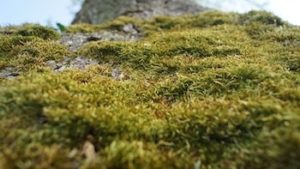
(Photo by Martin Lenker on Unsplash)
It’s 5 a.m. Women everywhere—professional women, mothers, students, writers, dog walkers—I salute you, my fellow cave-dwellers.
This may be the only piece of the day we can call our own. The rest will be given out—freely, generously—to our children, parents, coworkers, those we serve.
But for 15 minutes or half an hour we will hew out a small space in the rock of the night for creativity or spiritual renewal or to read the newspaper. Alone.
5 a.m. isn’t a pretty sight. It’s cold and it’s dark. In 10 more minutes I’m going to get on the Nordic Track. That isn’t pretty either. I sweat and listen to NPR. But without it I lose body chemistry balance. And when you’re a single working parent who cares for her elderly father you can’t afford to lose your body chemistry balance. There is not a minute in the day to be depressed.
I’m among the very fortunate. I have a housekeeper who comes every two weeks. I have massages, a chiropractor, a recovery program, and a group of therapists for me and my children. Since my father moved in with his expectation of a real family dinner at night, I also have cook. One of the army of helper angels—a woman who cooks a week’s worth of dinners one morning for a very modest cost. I have enough flexibility in my job to accommodate orthodonture and bouts of strep throat. I have a boss who is also a single mother.
I also am fortunate not to have a bad marriage on my hands. Only a man who was my soulmate who visits the children every three weeks in my home. While he is here, he tells me he loves me—while he lives with someone else—the candy talking to me through the impermeable glass window against which my nose is pressed.
I saw him accidentally not long ago. He doesn’t live where I do and had come to accompany a friend on a judicial errand. He and the friend were walking in a crowd near where I work. I was in a car my friend was driving and she slewed in a U-turn when I saw my ex-husband with the unflagging radar of the truly mated. I opened the door into the curb and would have lifted into his arms, which I could tell were rising to catch me, except our friends, witnesses, would have disapproved, cleaving—as is right—to reality.
I cursed having a soulmate.
He’s a good man but suffers from what the children’s therapist calls dissociative fugue. Beaten as a child, as sensitive an orchid as our second son who can’t go to the movies because they’re too loud, he didn’t survive. An essence is there—a flower encased in ice.
This happened once. He is a gardener—a mad gardener. In Houston where we first met he had a lush, decadent flowering paradise around his shotgun shack. It froze one night—uncharacteristically for steamy Houston—but he’d had warning and left the sprinkler on. The wisdom of the citrus grower says that, if the freeze isn’t too bad, a good ice covering can save the crop. After a night of the luxurious sex we then enjoyed, we checked the garden.
It was gorgeous—the most splendid garden I’ve ever seen. Each delicate passion flower, thumbergia, cosmos was perfectly preserved—its purple, gold, red made brilliant, its form sharpened by the glass it was enclosed in. The texture of the vining black-eyed susan was so perfectly preserved, the black velvet of its heart so clear, you’d like to lay your cheek against it. The whole garden was like that—mounds of ice holding perfect, brilliant flowers.
And precious too. Because when the sun hit and the ice melted, it was clear that the freeze had been too severe. The flowers were immediately dead, black things, hanging limp on dark stalks.
I guess I’d disassociate too—run, flee, have two wives—if to stay meant execution by defrosting.
But for me the lifeline holds at 5 a.m. I have my own damage, but it not cellular—so long, so deep, so bad—that I can’t still tunnel out, albeit secretly, in the dark of the morning, when no one is gunning for me, or I don’t feel anyone is.
There is a cave in the snow. In the opening to the cave, a woman stands watching the hills. She wears a long cape over a long dress, as in legend or fairy tale. There is a fire behind her, low on the ground. It is early morning, the sun would be rising except it has been snowing and is going to snow again soon.
Several miles away between the hills and the place where people live, a wolf trots. She is wounded, shot in the flank and dripping blood, a victim of having gotten too close to people. She is still trotting, despite the pain.
The wolf is too wild, too real, to be entirely totemic, yet she is looking for the cave and the woman she knows is watching for her. The woman will not heal her—she doesn’t have the skill or the supplies—but she will comfort her and wait with her.
The woman is indeed waiting for the wolf. Their companionship is complete, though not demonstrative. She knows the wolf will come back if she can.
For both of them the cave means more than safety. The woman, wounded by the villagers, though not visibly, finds that she can be who she is in the cave, as can the wolf. Though there are no flowers in the snow, there is warmth and the moss-like growth of the spirit.
Fellow cave-dwellers, I salute you.

Wonderful. Lyrical, graceful writing and a hopeful message. Just right for these strange days.
Thanks so much, Deborah! I hope you are well and safe. Time for all of us to take to our caves! Best, Ginger